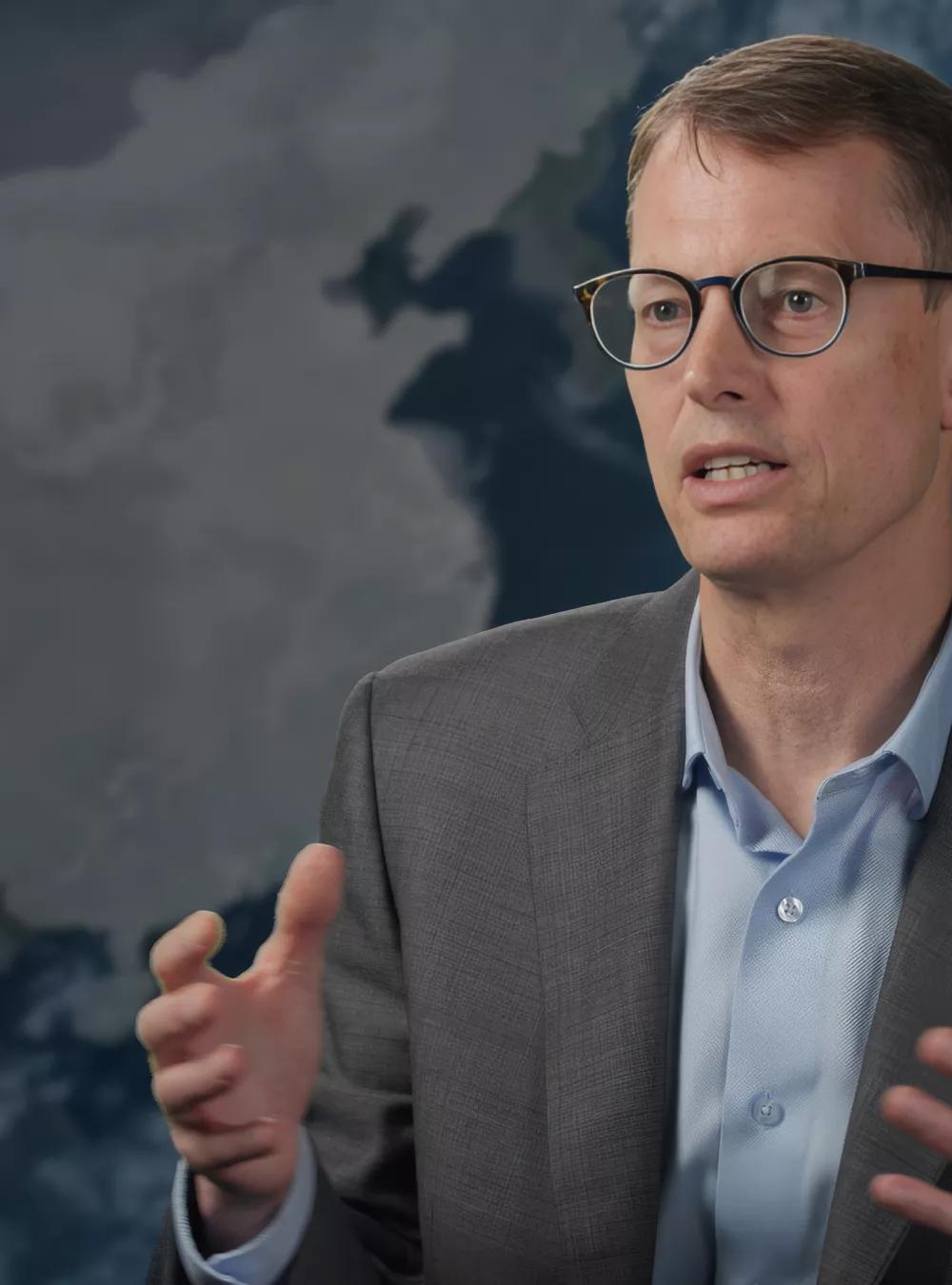The rise of the People’s Republic of China (PRC) is the greatest geopolitical challenge of this century. Competition between the U.S. and China comes down to two opposing visions: a rules-based international order that promotes liberty and free-market principles, versus an illiberal hierarchical system where strong nation states can set the rules to suit their preferences. China’s ambitions extend globally in pursuit of a new world order led by the Chinese government in Beijing—and it considers the U.S. the primary obstacle in that quest. In a series of videos, Mike Studeman, MITRE’s first National Security Fellow, a retired rear admiral and former commander of the Office of Naval Intelligence, discusses the need to take a deliberate approach toward shaping U.S. strategy and allocating our resources—an approach driven by a clear understanding of what’s really at stake.
The China Challenge: China’s Global Ambitions
Some scholars argue that China’s recent economic setbacks will constrain its position as a strategic threat. But most agree that the Chinese government will remain America’s key strategic competitor for decades to come.
The China Challenge: Why Taiwan Matters for Global Peace
The Chinese Communist Party has made Taiwan a focal point in its “China Dream” to achieve National Rejuvenation by 2049. Yet, debates continue over whether the PRC will invade, how the international community should respond, and if it even matters. How did one tiny island state in the Indo-Pacific become so critical to the international world order? Studeman dives into the complexities around the role of Taiwan in the balance for peace and how Chinese President Xi Jinping’s ambition to resolve Taiwan’s status is driving the timeline for a major global power conflict.
The China Challenge: The Hidden Offensive
The U.S., as a whole, underestimates the threat of China to our security, values, and prosperity. Most Americans remain largely unaware of the ways in which the Chinese government has infiltrated our society—and the implications of those influences. In some ways, we are our own worst enemy, giving China openings to exploit rampant U.S. political division, isolationism, and willingness to sacrifice America’s long-term interests for short-term profits. Which raises the question: how do you stop an infiltration you’re not aware of? Studeman addresses the challenges of this silent invasion—and how we need to counter it.
Beyond the videos, learn how MITRE is working with the whole of society to help the U.S. and its allies develop and operationalize deterrence strategies to avoid conflict and win if there is conflict.
